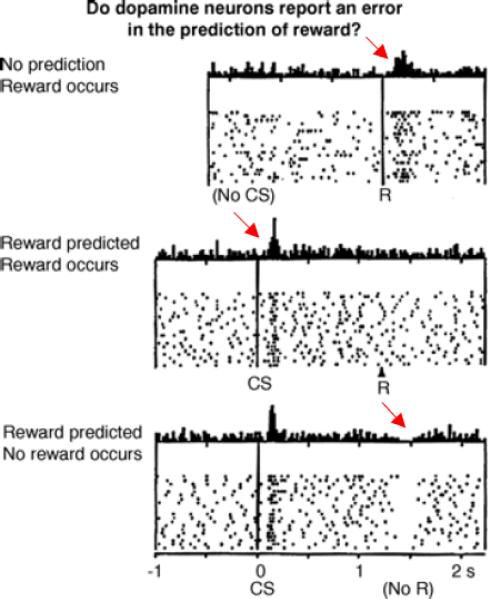FIGURE 2.
Reward-associated error signalling by short-term (“phasic”) dopamine release (cf. Schulz et al., 1997). Top: An unexpected reward (banana pallets for rhesus monkeys), which was not predicted by previous stimuli, generates an error in reward prediction (unexpected reward) that is reflected in a short term increase in dopamine firing. Middle: After learning that a previously neutral (now conditioned) stimulus (light) regularly predicts a reward, the surprising appearance of the conditioned stimulus reflects an error in reward prediction and generates a short-term increase in phasic dopamine firing rate. The reward itself is now completely predicted by the conditioned stimulus and does not elicit dopamine firing. Bottom: If a conditioned stimulus is not followed by the expected reward, an error in reward prediction occurs (unexpected lack of reward), which is reflected in a phasic decrease in dopamine firing.

